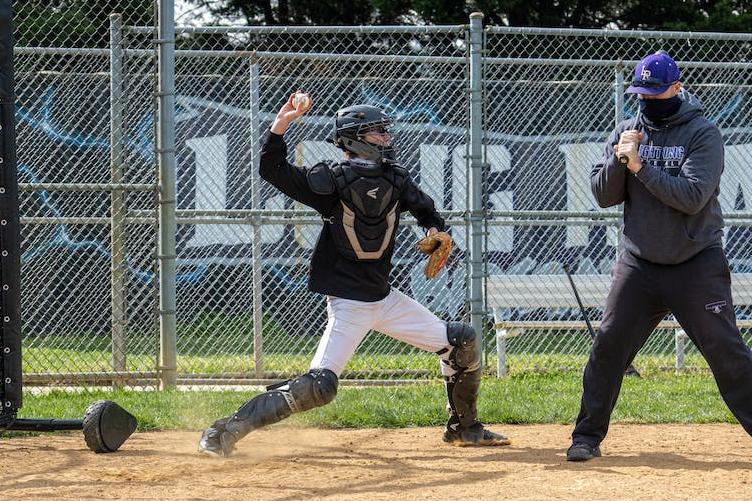
Exploring Crypto Gaming On Gamstop-Free Platforms
Crypto gaming is a new and innovative way for players to engage with their favorite…

In Minnesota, charitable gambling is permitted as a means for nonprofit organizations to raise funds for their charitable activities. One popular form of charitable gambling is electronic pull-tabs, which are electronic versions of the traditional paper pull-tab games. However, there are several rules surrounding electronic pull-tabs, particularly in the context of charitable gambling tax requirements.
Under Minnesota law, all organizations that conduct charitable gambling activities must be licensed by the state. They must also follow specific rules and regulations, including the allocation of the proceeds from charitable gambling activities. Any income derived from these activities is subject to both federal and state taxes.
For electronic pull-tab games, nonprofit organizations are required to use electronic pull-tab devices that have been approved by the Minnesota Gambling Control Board. Before being used in charitable gambling activities, these devices must undergo thorough testing and certification to ensure that they meet the state’s standards for fairness and security.
Additionally, organizations must keep accurate records of all their electronic pull-tab activities, including the amount of money collected, the prizes paid out, and any expenses incurred. They are also required to submit regular reports to the Minnesota Department of Revenue that detail their charitable gambling activities and the taxes owed.
Overall, by following the rules and regulations surrounding electronic pull-tabs in charitable gambling, nonprofit organizations can continue to raise funds for their charitable causes while also fulfilling their tax obligations to the state.
Electronic pull-tab games are subject to the charitable gambling tax requirements in Minnesota. These rules dictate that charitable organizations can only use electronic pull-tabs if they are registered with the state and have a valid license. The electronic pull-tab games must also comply with state regulations and guidelines.
The charitable gambling tax requirements also specify that a portion of the revenue generated from electronic pull-tab games must be donated to charity. This requirement is designed to ensure that the games are used for legitimate charitable purposes and benefit the local community.
In addition to the tax requirements, organizations must also comply with other regulations related to electronic pull-tabs. For example, the games must be operated on devices that have been approved by the Minnesota Gambling Control Board. The devices must be monitored and secured to prevent unauthorized access, and any malfunctions or errors must be reported to the Board.

Live dealer casinos are now available at various non gamstop online casinos. However, it is important to note that these casinos are not subject to the same charitable gambling tax requirements as electronic pull-tab games in Minnesota. These online casinos are usually based outside of the United States, and operate under different regulations and tax laws.
In the context of charitable gambling tax requirements in MN, the term “definition” refers to the clear and concise explanation of what constitutes charitable gambling and how it is different from commercial gambling. Under Minnesota law, charitable gambling is defined as any game of chance in which the proceeds are used to support a charitable organization. The state has specific requirements for charities that want to operate a gambling event, including obtaining a license, using the proceeds in specific ways, and reporting financial information to the state.
To meet the definition of charitable gambling, the organization must meet a number of criteria, including being a recognized nonprofit, having a charitable mission, and operating games with a pre-determined percentage of profits going to the charitable cause. It is important for organizations to understand the definition of charitable gambling to ensure that they are complying with state regulations and avoiding penalties or fines.
Additionally, the definition of charitable gambling helps to distinguish between different types of gambling in Minnesota. Commercial gambling, for example, is not considered a charitable activity and is subject to different laws and regulations. The clear definition of charitable gambling allows organizations to understand the requirements and restrictions associated with this type of activity, which helps ensure compliance with state laws and regulations.
In Minnesota, charitable gambling organizations are required to obtain the necessary licenses and permits to operate legally. The Charitable Gambling Division of the Minnesota Department of Revenue oversees the licensing process and ensures compliance with state laws and regulations.
Organizations must first obtain a charitable gambling license, which allows them to conduct various forms of charitable gambling activities, including bingo, raffles, and pull-tabs. In addition, organizations must obtain the appropriate permits for each individual event they wish to host.
To ensure compliance with charitable gambling tax requirements, organizations must keep detailed records of all gambling activity, including revenue and expenses. They are also required to submit regular reports to the Charitable Gambling Division and pay taxes on all gambling revenue.
Overall, obtaining the necessary licenses and permits is essential for any charitable gambling organization in Minnesota to operate legally and avoid penalties. To ensure the safety of players, top-rated online casinos without Gamstop employ strict security measures such as 128-bit SSL encryption.
In Minnesota, charitable gambling is regulated by the state’s Department of Revenue. For organizations that hold charitable gambling events, including raffles, pull-tabs, and bingo games, there are specific tax requirements that must be followed. One important aspect of these tax requirements concerns the prizes that can be awarded to winners.
Under Minnesota law, the total amount of prizes awarded in a given event must be less than 70% of the gross receipts from the event. Additionally, the maximum prize amount that can be awarded in a single game is $12,000. If the actual value of a prize exceeds these limits, the organization must either reduce the prize amount or pay the additional tax.
Charitable gambling organizations must also keep accurate records of all prizes awarded, including the value of each prize and the name and address of each winner. These records must be maintained for at least three years and made available to state auditors upon request.
While charitable gambling can be a fun and rewarding way to support a worthy cause, it is important to ensure that all tax requirements are being met. By following the rules and regulations set forth by the state, organizations can continue to raise funds for their charitable activities while staying in compliance with the law.
Licensed non Gamstop casinos UK offer a wide variety of exciting live dealer games.
Testing is an indispensable process for organizations that need to comply with charitable gambling tax requirements in Minnesota. These organizations must make sure that they have the necessary technology and infrastructure to run gambling games and keep accurate records. Testing helps ensure that the technology and infrastructure are working correctly, accurately recording events, and allowing the organization to comply with tax requirements. Testing for charity gaming involves verifying financial transactions, ensuring that game outcomes are determined randomly, and that all mechanics conform to state regulations.
Testing must be done by a licensed testing lab with no financial ties to the organization. The testing lab must verify the compliance of the devices or systems, including the random number generator, software, hardware, and system security. The organization must provide documentation of the test results to the Minnesota Department of Revenue. The testing must be completed before the devices or systems go live, and after any significant changes or upgrades to the technology or infrastructure.
In short, testing is a critical aspect of Minnesota’s charitable gambling tax requirements. It helps ensure that organizations meet regulatory requirements, maintain the integrity of the games they offer, and keep accurate records of financial transactions. Organizations must adhere to these requirements to avoid penalties, fines, and possible revocation of their licenses.
In MN, charitable gambling organizations are required to adhere to specific tax requirements related to their operations. Accounting plays a crucial role in ensuring compliance with these regulations. These organizations are required to maintain accurate records of all gambling activities, including receipts and disbursements. The accounting process involves tracking revenue from games, such as pull-tabs and bingo, and ensuring appropriate deductions are made for expenses. All financial transactions must be properly documented and reported to the appropriate tax authorities.
To ensure compliance with charitable gambling tax requirements in MN, organizations must have a qualified accountant or bookkeeper who understands the rules and is able to maintain accurate financial records. This includes ensuring that all revenue from gambling activities is properly accounted for, and that all expenses are properly documented and recorded.
If you’re looking for the ultimate experience in online gambling, you should try out live dealer games at the new non gamstop casinos.
Tax Requirements:
In Minnesota, charitable gambling is regulated and taxed by the state. Organizations that conduct charitable gambling must comply with federal, state, and local laws and regulations. Charitable gambling may include raffles, bingo, pull-tabs, tipboards, paddlewheels, or other games of chance.
One of the tax requirements for charitable gambling in Minnesota is the payment of state and local taxes. Organizations that conduct charitable gambling must pay a gross receipts tax of 8.5% of the gross receipts from all games, less prizes paid out. They may also have to pay additional taxes, depending on the type of game and where it is conducted.
In addition to taxes, organizations that conduct charitable gambling must file regular reports with the Minnesota Department of Revenue. These reports include information about the type and location of games, total receipts and payouts, and other details. Failure to report or pay taxes can result in penalties and fines.
It is important for organizations that conduct charitable gambling to understand and comply with all tax requirements to avoid penalties or fines. They may seek the guidance of a tax professional or consult with the Minnesota Department of Revenue for more information.
In Minnesota, charitable gambling organizations are required to pay sales tax on their gross receipts from the sale of pull-tabs, tip boards, and bingo. Charitable organizations must register for a sales tax permit and remit sales tax on a monthly basis. Sales tax rates vary based on the location in which the sales are made. If sales are made in a city or county with a local sales tax, the organization must also collect and remit that tax. The Minnesota Department of Revenue provides detailed information on sales tax requirements for charities.
If you’re looking for high withdrawal limits, top-rated non gamstop sites are the way to go.
In Minnesota, charitable gambling organizations are required to pay taxes on all the gross receipts generated from the conduct of various forms of gambling that they host. Charitable gambling organizations that are licensed by the Minnesota Gambling Control Board are required to file a tax return known as the Lawful Gambling Tax Return (LG 990) every year.
The LG 990 tax return is due on the last day of the month following the end of the organization’s fiscal year. Charitable gambling organizations are required to pay a tax equal to the gross receipts they generate from lawful gambling, which includes pull-tabs and electronic games. The tax rate varies depending on the gross receipts of the charitable gambling organization.
For receipts between $0 and $62,500, the tax rate is 8.5%. For receipts between $62,501 and $137,500, the tax rate is 10%. For receipts between $137,501 and $275,000, the tax rate is 11%. For receipts over $275,000, the tax rate is 12%. In addition to the LG 990 tax return, charitable gambling organizations may also be required to file other tax forms depending on their activities, such as the Sales and Use Tax Return or the Withholding Tax Return.
Charitable gambling organizations must comply with all the relevant tax requirements to avoid penalties and interest charges. Failure to file the LG 990 tax return or pay the lawful gambling tax can result in revocation of their gambling license, as well as additional penalties and interest charges.
In Minnesota, charitable gambling organizations must follow specific tax requirements set out by the state. One critical aspect of these requirements is accurate reporting. The organizations must keep detailed records and provide information to the Minnesota Gambling Control Board regularly. This reporting ensures transparency and accountability in the use of the gambling proceeds.
Charitable gambling organizations must report all their gross receipts and returns, as well as any other documents required by the board. They must provide monthly summaries as well, which includes the number and type of games played, the price of the tickets sold, the amount of prizes awarded, and the total amount of expenses. Failure to report accurately can result in penalties or license suspension.
Additionally, organizations that conduct more than $35,000 in gross receipts per year must submit an annual report to the Minnesota Department of Revenue. This report requires a detailed breakdown of all expenses, including game expenses, advertising expenses, charitable contributions, and so on.
Overall, reporting is a crucial part of charitable gambling tax requirements in Minnesota. It ensures that the gambling organizations remain accountable and transparent in their operations, and that the state receives appropriate tax revenue from these activities.
In Minnesota, charitable gambling organizations are required to file various reports with the Minnesota Department of Revenue to comply with tax requirements. These reports, also known as filings, are due at specific intervals and contain important information about the organization’s gambling activity, including revenue, expenses, and taxes paid.
Non-profit organizations that engage in charitable gambling activities must file an annual report with the Minnesota Department of Revenue to report their gross receipts, payouts, expenses, prizes, and taxes paid. This report is due by March 1st of each year.
In addition to the annual report, organizations must also file a monthly Tax and Revenue Report covering the previous month’s charitable gambling activity. This report is due on the 20th day of the following month, and must include information such as gross receipts, payouts, and taxes paid.
Failure to file these required reports can result in penalties and the revocation of a non-profit organization’s charitable gambling license. Charitable gambling organizations in Minnesota are encouraged to maintain accurate and thorough records to ensure they are in compliance with state tax requirements.
Due dates for charitable gambling tax requirements in MN vary based on the type of tax and the amount owed. For annual gambling taxes, the due date is February 15th of the following year. For quarterly taxes, the due date is the last day of the month following the end of the quarter. For example, if the quarter ends on March 31st, the tax is due by April 30th.

If the due date falls on a weekend or holiday, the due date is extended to the next business day. If the tax is not paid by the due date, penalties and interest may accrue.
Charitable organizations that conduct gambling activities in Minnesota are required to report their gross receipts, expenses, prizes paid, and other related information to the Minnesota Department of Revenue. Failure to report this information accurately and in a timely manner may result in fines, penalties, and/or license suspension or revocation.
It is important for charitable organizations to understand the due dates and requirements for charitable gambling tax in MN to remain in compliance with state law and avoid any negative consequences.

In Minnesota, charitable gambling activities are governed by specific tax requirements that must be followed in order to maintain compliance with state laws. One of the most important tax requirements for charitable gambling activities is reporting and remitting the appropriate taxes to the state.
Under Minnesota law, charitable gambling operators are required to pay taxes on the gross receipts generated from their gambling activities. The tax rate varies depending on the type of gambling activity being conducted and the amount of gross receipts generated.
In addition to paying taxes on gross receipts, charitable gambling operators are also required to file a tax return with the Minnesota Department of Revenue. This return must detail the amount of gross receipts generated and the amount of taxes owed.
To ensure compliance with these tax requirements, charitable gambling operators in Minnesota are encouraged to maintain detailed records of all gambling activities. This includes keeping track of all receipts generated, as well as any expenses associated with the operation of the gambling activity.

By following these tax requirements and maintaining detailed records, charitable gambling operators can avoid potential penalties and fines from the state of Minnesota. Additionally, they can ensure that their operations remain transparent and compliant with all applicable state laws and regulations.
In Minnesota, charitable gambling is a popular way for charitable organizations to raise funds. However, with the fun and excitement of charitable gambling comes the responsibility of paying taxes. The state has specific charitable gambling tax requirements that all organizations must adhere to, in order to stay in compliance with the law.
Under Minnesota law, organizations conducting charitable gambling are required to obtain a permit from the state. Additionally, they must pay taxes on their proceeds in accordance with the state’s tax code. For instance, organizations that gross less than $1,500 in a year must pay a nominal tax of $35. However, for organizations that gross over $35,000 in a year, the taxable amount increases depending on the amount of gross receipts.
Furthermore, organizations are also required to maintain documentation and keep detailed records of their financial transactions related to charitable gambling. This can include bank statements, receipts, and financial reports. Organizations should also be prepared to provide this documentation to the state’s regulatory agencies, should they request it.
Overall, charitable gambling can be a fun and exciting way for organizations in Minnesota to raise funds for their charitable causes. However, it’s important to understand and adhere to the state’s charitable gambling tax requirements to avoid any potential legal issues. By staying compliant and keeping detailed records of their financial transactions, organizations can ensure that they are meeting their obligations and fulfilling their mission.